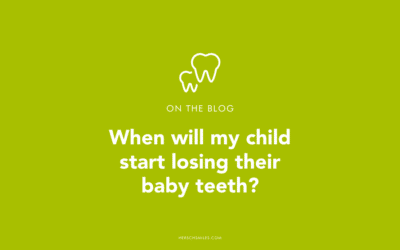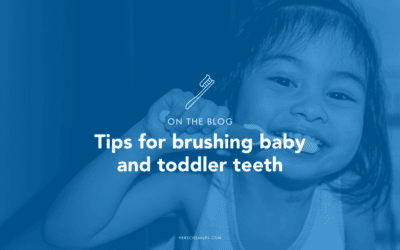Did you know that baby teeth first begin to form even before they are born? You’ll usually see the first one or two appear around 6 months of age. By the time they are 3 years old, they should have their full set of baby teeth. Once in place, their teeth will help your kiddo smile, speak properly, and chew a variety of foods. Their set of baby teeth also hold a spot for their permanent teeth, giving them a clear path to emerge straight and in the right place. Typically children will still have some baby teeth until the age of 12. This is why they will need extra special care. Here’s what you need to know:
BRUSHING
You’ll need to take care of your child’s teeth by brushing them regularly. You want to be careful about both the toothbrush you use and brushing techniques you are teaching them. You shouldn’t clean and care for baby teeth the same way you care for your own. Make sure you purchase a toothpaste specifically for babies or children, which tend to be milder and tastes good. Children’s toothbrushes are designed for their small hands and are easy to grip and maneuver. Try to make morning and night time tooth brushing fun by adding a song, dance, or sticker reward. Download our free printable sticker chart here!
DIET
Diet plays an important role in keeping those baby teeth healthy. Make sure to avoid sugary foods, drinks, and candy. It is also important to brush after every meal and only give your child water in between meals. You can learn about healthy foods to pack in your child’s lunchbox in our previous post! It is also important to avoid giving your child any food or drinks after their night time brushing session.
DENTAL EXAMS
We recommend your child has their first dental visit around the age of one year old, or six months after their first tooth erupts. This may seem young but it’s important for them to get a jump start on dental conditions like gum disease and tooth decay. Beginning your regular trips to the dentist young will also help your child get used to the dentist, which will help prevent fear that may develop later in life.
By starting your child’s oral hygiene and dental care early, you will be setting them up for a lifetime of good oral health and a sparkling bright smile. Schedule your appointment today!






